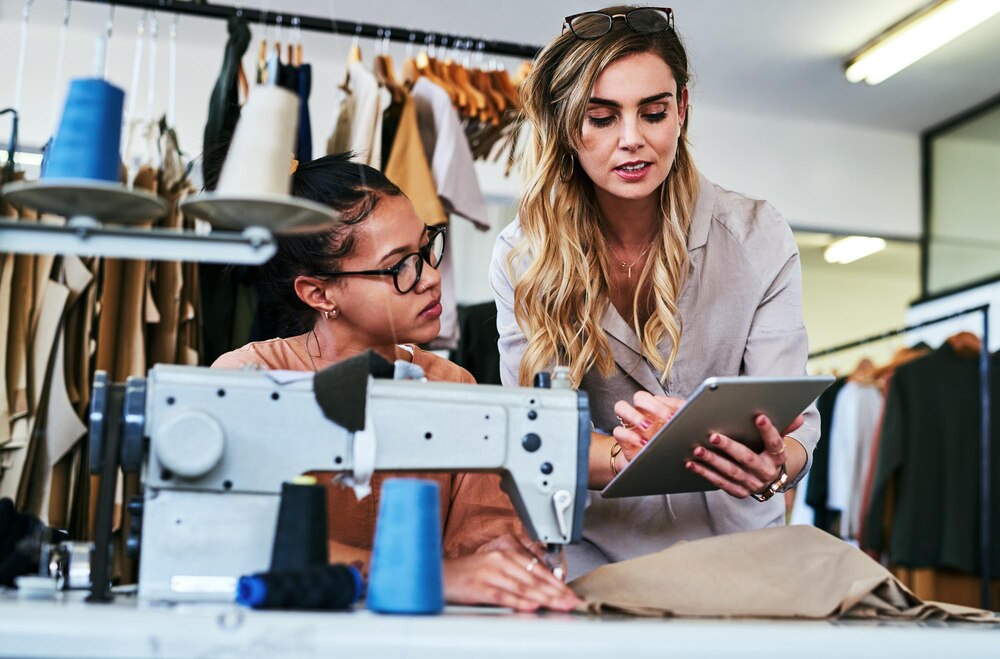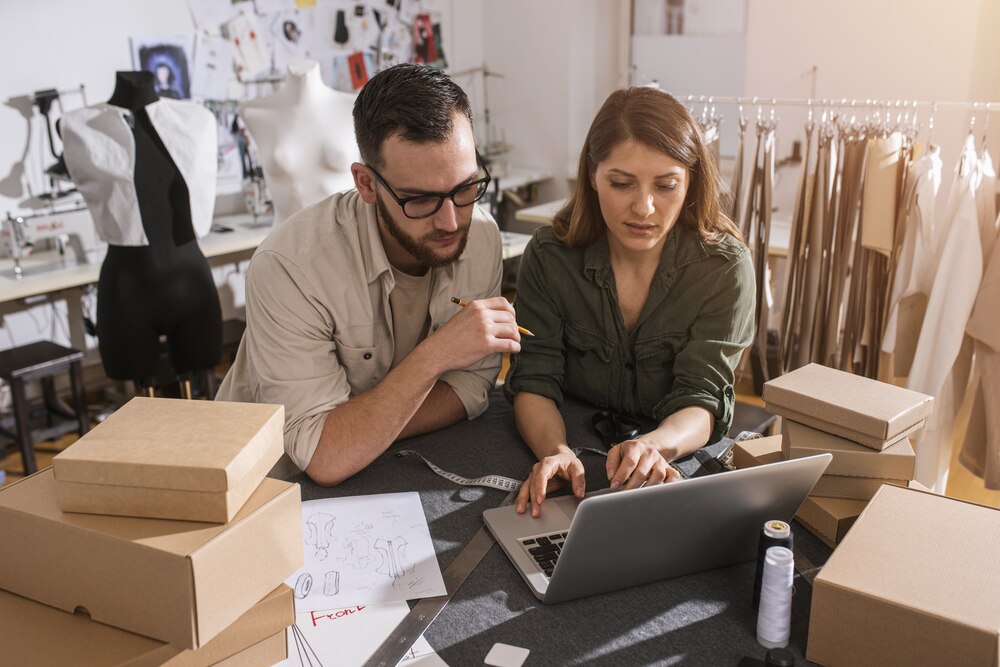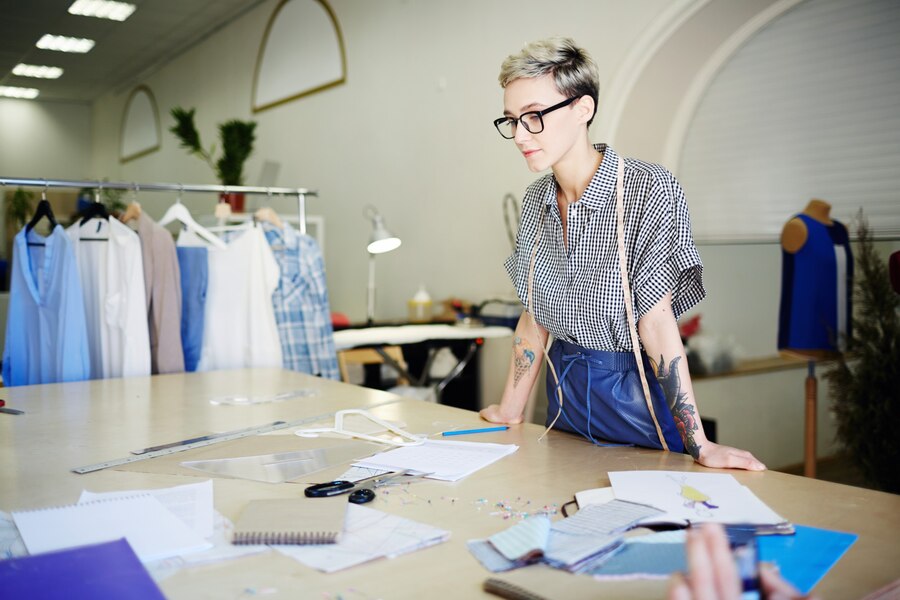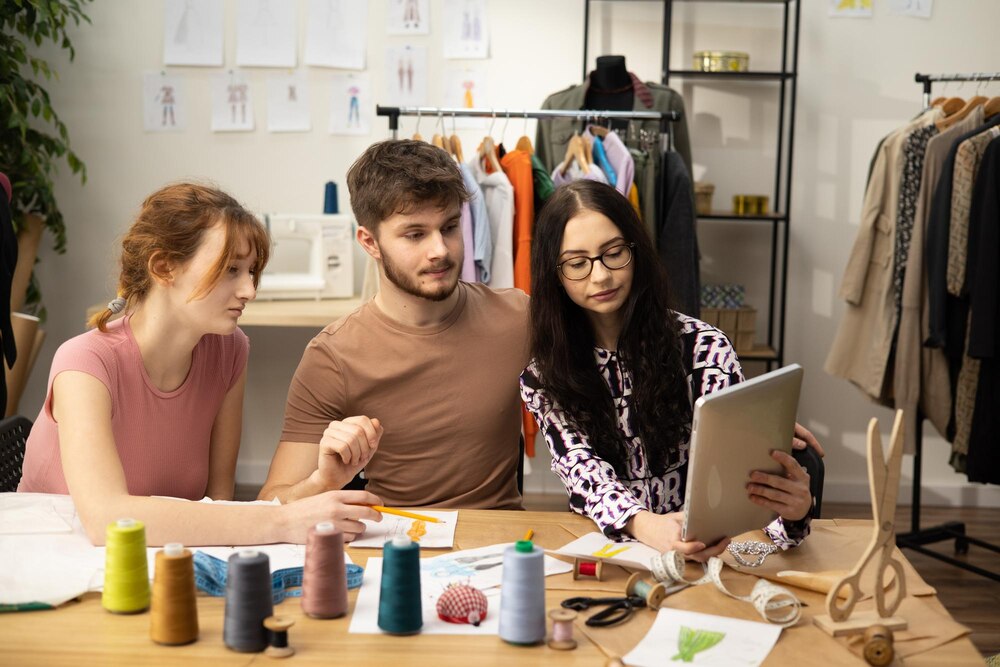The best Fashion Startups to Watch in 2025 Accelerating style, technology, and sustainability startups.
Introduction
Fashion Industry Startups is changing everything in the world of apparel collision of innovative technologies, the creativity and sustainable explosion in 2025. Whether it is the way AI-enabled design is increasingly used, or a leader in circular materials, these startups are addressing some of the most pressing environmental concerns, as well as making design more personal and efficient. This article features the Top Fashion Industry Startups as well as their strategies and the evolutionary trends that they are contributing in the fashion world.
Defining New Wave, What is a Great Startup in the Fashion Industry
The type of thing a startup needs to have to be prominent in the list of Fashion Industry Startups in 2025 consists of:
- Increased technological empowerment (AI, AR and blockchain)
- Abstract: Circular or sustainable material innovation is important at the problem to solution stage.
- Market traction, i.e. funding rounds, partnerships

Disruptiveness and fit in the industry
These criteria discriminate the most powerful Fashion Industry Startups that have been reshaping what fashion creation and consumption should be in the present day and age.
-
Intelligent Designs and Try-Ons
Raspberry AI
Raspberry AI is one of the leading Fashion Industry Startups, as it has developed the generator AI platform, which turns crude drawings into realized design concepts. With a $24 million Series A funding and an active contributor to the growth of the industry, it enables brands to enable rapid prototyping and iteration without the need of physical sampling
Doji
The other notable Fashion Industry Startup is Doji, which provides to its users avatars generated by AI, which they virtually use to choose clothes, boosting confidence and lowering returns
Lalaland.ai
Lalaland is a European pioneer in this industry, offering a wide range of virtual supermodels to e-commerce businesses so that they can present their exclusive imagery and reduce the costs of photoshoots
-
Roundy Material Innovators
Matereal, Refiberd, MannyAI
These are 2025 Global Fashion Agenda Trailblazer Awards mentioned as finalists, which portrays the finest Fashion Industry Startups aiming at next-gen materials. Matereal produces bio-based equivalents of polyurethanes; Refiberd applies AI to recycling of blended textiles; MannyAI produces on-demand, data-driven materials production: all extend the frontiers of sustainability
Sequinova, BioFluff, Bananatex ®
The European eco‑tech entrepreneurship, such as Sequinova (cellulose-based sequins), BioFluff (plant-based faux fur) and Bananatex(R) (banana-fiber textiles) is catching up as a vital part of the Fashion Industry Startups in the shift to biodegradable materials
-
Textile Recycling Circular Systems
Circ, Evrnu, Unspun
The above are some of the Fashion Industry Startups transforming the world of textile waste. Circ uses poly-cotton as a raw material and turns it back into reusable fibers; Evrnu recycles old cotton waste through patent-pending technology; and Unspun offers jeans 3D-woven to order which reduces leftover material out as well as creating a circular fashion practice
BlockTexx, Vividye, Rifo
Whether it is recycled mixed-fiber fabrics (BlockTexx) or reversible-dyed fabrics (Vividye) and re-materialized cashmere clothes (Rif), Fashion Industry Startups are some of the most creative in forming new circular solutions
-
Metaverse and the Digital Fashion
Tribute Brand
Tribute Brand is one of the first Fashion Industry Startups that provides garments friendly in terms of AR and metaverse application. They fill in this gap between material and virtual world by mixing physical pieces, NFC-enabled, with digital twins.
DRESS
As digital-only fashion pioneers, with AR-enabled-try-ons and irreplicable NFT clothing, DRESS is more of an apparel-freemium model with a drastically lower environmental impact than physically manufactured clothing, as well as creator-friendly commerce.

-
Fashion Supply, Chain Optimization & Analytics
Stylumia
Stylumia helps brands use AI in their demand forecasting to avoid overproduction, an aspect that has made it gain a place among data-duced Fashion Industry Startups
Gentelier, Wearify,
With a 3D visualization, virtual fitting, and AI-powered design, these platforms hasten the development of products and reduce the amount of sampling involved, the backbone behind the Fashion Industry Startup revolution.
-
SaaS Fashion as a Service & Resale
Depop & Treet
Depop, a social resale marketplace and Treet, a brand-resale enabler, are two of the top Fashion Industry Startups helping to promote resale of all kinds, including community listing and brand-level trade-in options
Phia
One of the new faces among Fashion Industry Startups is that of Phia, which was co-founded by Phoebe Gates, assessing the value and finding resale sources of secondhand shopping (Chrome extensions).
-
Sustainable Fashion companies
Paire
Owing to its CoolBlend TM and BioFlex TM fabrics, Paire is an example of consumer-ready sustainable performance wears. Its revenue of 17? million gives an idea of how Fashion Industry Startups can succeed in breaking the rules thrown by fast fashion.
Eco‑tech Textiles (Spindye, Salubata)
We are SpinDye and Salubata who provide a water-saving dye technology and plastic-waste sneakers respectively and supported by new production patterns characteristic of contemporary Fashion Industry Startups
The Reason these Startups are Transformational
Creative technology: AI and virtual tools makes the high-end design democratic.
Circular impact: Waste is combated with recycled inputs and the innovations that are made out of biodegradable forms.
Digital-first fashion: Inventory and consumer behaviour is reinvented in virtual clothing.
Data driven efficiency: Predictive analytic decreases returns and misproduction.
Community trade: The resale and secondary markets engage sustainable consumers.
Ultimate, these Fashion Industry Startups are reinventing a more inventive, ethically dedicated and technologically constructed fashion system.

Problems of Fashion Industry Startups
Scaling new materials: Biopolymer alternatives should be as effective and low-cost as the conventional ones.
Consumer adoption: Virtual clothes and styles derived by AI require an emotional adoption.
Regulatory needs: Digital wearables present regulatory issues relating to certification, wearing rights and IP.
Technology adoption: The new tools should be incorporated into the prevailing supply chain and retailing systems in order to become popular.
The management of these issues will help Fashion Industry Startups that will flourish in the long run.
Future Watcher What to Watch in 2025 and Beyond
Scale ups on Material, Refiberd, and MannyAI following wins of the Trailblazer awards.
The adoption of digital fashion is on the rise, and brands such as Tribute Brand and DRESS X drop NFT apparel.
Resale expansions: Depop and Treet are spreading to international markets and exploiting Gen Z.
Artificial intelligence design: Raspberry AI and Doji raising Series⯰ rounds and integrating with large brands.
Cyclical tech-releases: BlockTexx and Evrnu upscaling to the industrial level.
All these will also cement which Fashion Industry Startups are likely to become a household name.
Stakeholder tips
Brands
Collaborate with startups such as Stylumia and Spindye to reduce waste and increase the Eco-credentials.
Retailers
Provide virtual fits based on Doji or DRESSX, and incorporate resale by means of Treet or Phia.
Investors
Technology, sustainability, and obvious consumer need: Fund startups that combine the three ingredients: technology, sustainability, and conspicuously obvious consumer need; particularly in the circular systems and AI design.
Consumers
Choose brands that use recycled materials and consider going to AR/virtual fashion networks to make a smaller footprint on the environment.

Frequently Asked Questions About Fashion Industry Startup
Q1: What makes a startup fit into being a “fashion tech” company?
A fashion x tech startup, such as an AI, AR, circular materials, or blockchain one, can be called a fashion tech or Fashion Industry Startup.
Q2: Are we giving up physical clothes in favour of such digital ones?
Digital clothes only find their attractions close to social content and environment-friendly clients, whereas real clothes are centric. Both live in a mixed future.
Q3: Are resale businesses profitable?
Yes, through commissions and exploiting a rising circular economy trends, market places such as Depop and Treet are generating profits.
Q4 The cost of sustainable materials: Are sustainable materials expensive?
At first, indeed, but scale-up solutions such as Matereal or Spindye are intended to decrease prices and facilitate industry implementation.
Q5: What will be the speed of incorporation of AI design in the fashion mix?
This is happening fast even now-small companies such as Raspberry AI and Doji already work with brands and soon the increase will be more dramatic until 2026.
Q6: Could circular-fashion tech?
Indeed–startups such as Circ and BlockTexx have already piloted industrial recycling with its use set to increase in the near future.
Conclusion
The emerging Fashion Industry Startups are going the extra mile in terms of tech-enabled creation, environmentalism, and digital experiences. These are innovators who are changing every single step of fashion already, through AI-designed clothing by Iris Van Herpen to plastic-to-sneakers by Alexander Imich. The future of style and business, and environmental responsibility are all invaluable insights in 2025 and this is a crucial period when following their directions.
To keep in touch with us for Daily updates :
Also follow our social medias to be up todated : https://facebook.com/money.mexa
To get daily upadate please visit Moneymexa.com regularly.

